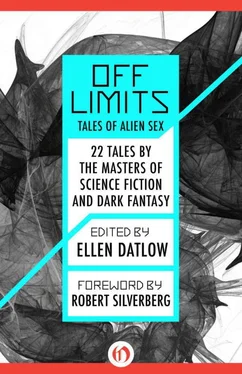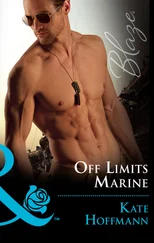“Yes.”
“Like it was real?”
“Yes.”
“Were you excited?”
“Yes.”
“You could buy a shell.”
“I don’t come near what others have touched.”
“People have touched everything. It’s life.”
“No. The opposite. Fingerprints signal oncoming death. Germs cling to surfaces. Waiting to cause illness, suffering. Disinfection is impossible.”
Silence.
“But you miss touching things. You must.”
Silence.
“Is that why I’m here?”
“Let’s go on.” Points. “The pencil.”
“It’s wooden. Painted to feel smooth. No heavier than a sugar cube. The name of the hotel is etched into the side like… inverted braille.”
“What about the curves? How does the rubber feel on the eraser? Sticky? Firm? Angular? And the tip?”
“Well…”
“Frayed? Shredded? Or softly worn? Rounded? There’s a difference.” Impatient. “How about the sharpness of the point? Somewhat blunted and oval-ended or almost pinpoint? And the lead. Soft? Chalky? Hard like bone? Cracked on one side? Does it bend between fingertips?” Almost angry. “You didn’t describe the metal collar that anchors the eraser. Is it serrated? Grooved? Does it have a curved rise? Several rings? A sharp edge at the seam where it anchors the eraser. Could it draw blood if you ran skin over it? Is the pencil tubular, or seven-sided as is common design? Are the painted letters and numbers on the side more smooth than the painted section?”
“It’s very…”
“Generalities. You have no feel for it.”
“I’m sorry.”
“I felt nothing .”
Eyes downward. “Do you want me to go. You don’t have to pay me anything.”
A moment. A sigh. Gesturing. “The drinking glass.”
She delicately picks it up.
“It’s light, almost no weight at all. Cylindrical, warm from the hotel room heater. So smooth it seems to have no surface. So hard it has a brittle strength. A kind of tension like it could explode unexpectedly from the compacted frustration of the molecules.”
“Interesting. Keep going.”
“The edge where you touch it to your lips is rounded.”
“Touch it to your lips.”
“It rests on my mouth. Presses down my bottom lip. The upper edge of the glass touches my nose. It fits into my hand. Separates my thumb and index finger by two inches. It feels good to hold it. The weight and shape are comforting.”
“Pour water into it. A little at a time.”
“Alright.” Pouring. “It’s getting heavier, I can feel the weight in my wrist. My fingers have to grip more tightly.”
“Can you feel the coolness of the water through the glass?”
“Yes.”
“Describe it to me.”
“It feels the way it feels when you take your glove off on an early winter day. The first seconds your skin can notice the cold.”
“Vague. Give me another example.”
“…the sensation of adding cold water to a hot bath and feeling chilly tendrils, struggling through the warm liquid to find you.”
“Better.”
“Can you remember that?”
“Yes.”
“The water is climbing higher in the glass. A quarter inch at a time, splashing softly against the glass, spraying my hand with tiny, heatless droplets… can you feel it?”
“Yes.”
“…as it fills the glass, I feel the rising coolness, inside the glass, climb my palm…”
“…yes.”
“…there’s a dew forming on the outside of the glass. I can feel it with the sponge of my fingertips.”
“Keep going.”
“I feel the droplets from this moist film seep between my fingers. And I feel the weight of the glass shift, as the water tips from side to side.”
“Drink it.”
She leans the glass back, against full mouth, swallows; a voluptuous drain. Looks at him.
”I can feel it going down inside me like…”
He breathes harder. Tightens; bends. Releases.
“Do you want me to describe it?”
“Later. I need to rest now.”
Silence.
“We’ll start again in a few minutes.”
“Alright.”
“Think about the lamps. The phone. The faucet handles. I want to hear about them.” His voice shrinks; a whisper. “Before I forget.”
He closes eyes. Leans back on the motel bed.
She watches him from her chair. Wants to gently touch him. To reassure, stroke his sad face. Calm his heart. She wonders what happened to him. What hurt had crept oddly inward; shaken his world.
As he rests with eyes shut, she moves to him and slowly reaches. Then, as her warm palm nearly touches his cheek, she looks at her hand.
All at once, she sees the small, healing cut on one knuckle that provides an unlocked door to the viral body within. The fingerprints that provide soft alleys and canyons for the poisons of mankind; infinite hiding places for illness, invisible beginnings of pain and plague. The immeasurable death affixed to the underside of her nails, barnacled in the deep creases of her palm.
She quietly withdraws her hand. Sits back down in her chair, waiting for him.
Oral
Richard Christian Matheson
Need and fear.
The human gravities that make us seek another to listen. To deliver us. Priests, psychiatrists, family; our counselors and whores.
When lost, we need others to find us. To banish doubt. To hold what is too sharp for our hands. Too hurtful for mind or soul to host. Through the borrowed senses of another, transfusion occurs.
Mind nurturing mind. Heart nurturing heart.
And then your hour is up.
Simon Ings almost never leaves London. This is only partly due to his being the editor of Arc , a digital quarterly of futuristic and science fiction from New Scientist . He is also a novelist. Ings began by writing science fiction ( Hot Head ) and thrillers ( Painkillers ) to explore perception and cognition—interests that now feed his science writing. One o his works, The Eye: A Natural History , is a personal journey through the evolution, science, and culture of vision. His most recent novel is Dead Water and he is currently working on a history of Soviet science under Stalin due in 2014.
THE SEA IS OFF-WHITE, BANDED by blue wave shadow. A line of clotted cloud lies between it and the cobalt sky of La Rochelle.
Angèle talks but I’m not listening. I’m building sand castles. First the foundation—a bay. (I wiggle my fingers over the smooth sand for waves.) Its sides make a natural amphitheater, rising to near alpine heights in a succession of tiers. (I have to dig for sand sticky enough to hold together, and still the gradients are too shallow.) For a while I look at it, reluctant to add more. Two hundred years ago, this place was as I’ve modelled it—a natural thing. Rock-strewn fields with a scattering of olive trees.
I sigh, add the Hotel de Paris, the Casino: all the anonymous infrastructure of the Principality. I lie down in front of the model and pick away the square and the Boulengrins with a fingernail. (Behind my eyes I fill the space with formal gardens, tropical trees, and cacti the size of oaks.) I press my little finger at a slant into the model to indicate the tunnel through to the harbor. The finishing touch: I trail sand between my fingers along the edge of the cliff to make the concrete wall Frasange demolished last year when his throttle jammed at 600 km/h.
I follow the route with eyes hijacked by memories; then I trace it with my fingers, plowing the damp sand—my sculptures tumble. For a moment I am a child again, a petulant little god. I ball my fist and obliterate the model. Only the route is left—a drunken O in the sand.
Читать дальше












